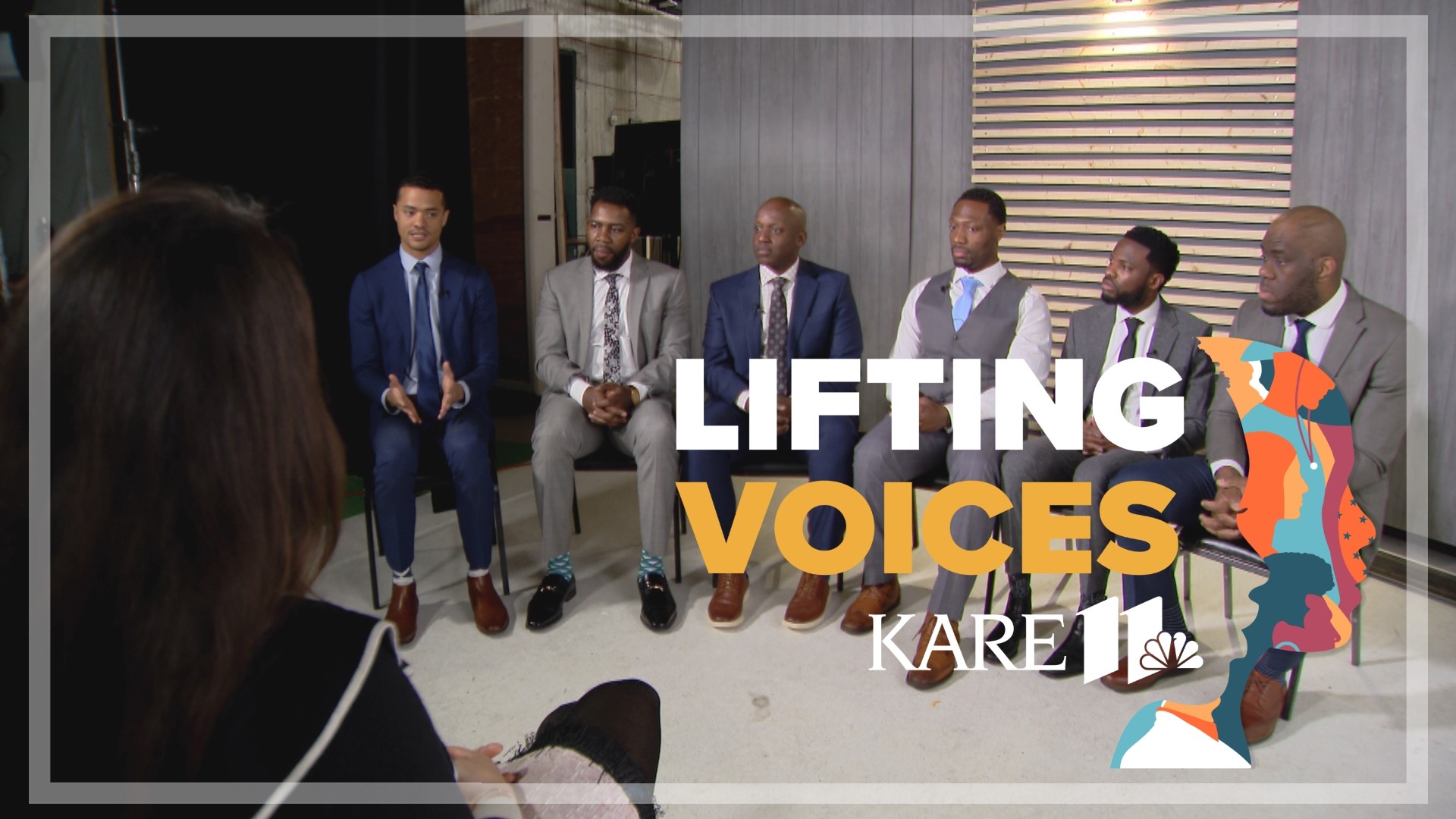MINNEAPOLIS — Six principals came to the KARE 11 studios to talk about their careers, the support they give each other as Black male educators, and the jobs they have as role models to both students and staff.
Here are the six:
Nate Gibbs, the Eden Prairie High School principal
Xavier Reed, Wayzata Central Middle School principal
Akram Osman, Dakota Meadows Middle School principal
Dr. Quennel Cooper, Prairie View Elementary School principal
Ashley Farrington, Wayzata Birchview Elementary principal
Richmond Tweh, Edgewood Middle School principal
FARRINGTON: If my mom was sitting here, too, she'd say, "This boy always wanted to be a teacher."
TWEH: I would say I was somebody who struggled academically in school.
REED: We've all been Black students. We've gone through the K-12 system. When you think about Minnesota with the highest achievement gaps, we have that perspective of what that's like to be that student in that seat.
GIBBS: Frankly, even right now in K-12 education, we're not doing a good enough job yet making the school experience for students one that really nurtures a sense of belonging and connection.
FARRINGTON: If we can impact the school experience at a level that I strongly believe that we can, then that's the pipeline into education. Because if you feel good about school, you're going to want to go back to school, and a little bit more pay would be good, too — just saying. But that's the magic to our job is we want to be future-ready, and the best way to be future-ready is to have really good schools so they can come back as good staff.
TWEH: There's a narrative that educators don't get paid well, and also didn't have educators that looked like me outside of the behavioral role.
COOPER: If you look in education, there's less than 2 percent Black men in education. So to be able to get connected with others and work, I left education because I didn't feel the support. Coming to a new environment, being the only Black male, I was like, "This is not what I signed up for."
TWEH: When I was growing up, if I saw a Black man, which is few and far in between, I may not know if he really understood me on something as simple as how they present themselves.
REED: I think it's important as well for students to be able to see us as role models and being able to see us as change agents.
OSMAN: [It] starts with every kid that looks like me in the classrooms, in the schools that I've led in and the brilliance and joy they have that often doesn't get elevated enough.
GIBBS: It takes some foresight and intentionality to identify potential even when people don't check all of the traditional boxes.
FARRINGTON: I firmly believe that our system continues to do the same thing over and over again and we need people within the system that will disrupt that a little bit.
REED: There's a lot of other ways that Black men are depicted sometimes and I think that it's important to show them that we are doing great work, we are caring, we are loving, and we are approachable — we are all of these things.
Watch more Lifting Voices:
Watch all of the latest stories from Lifting Voices in our YouTube playlist:

